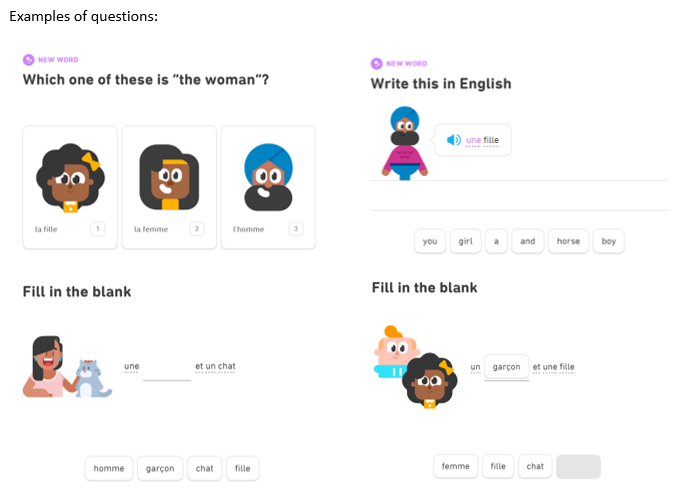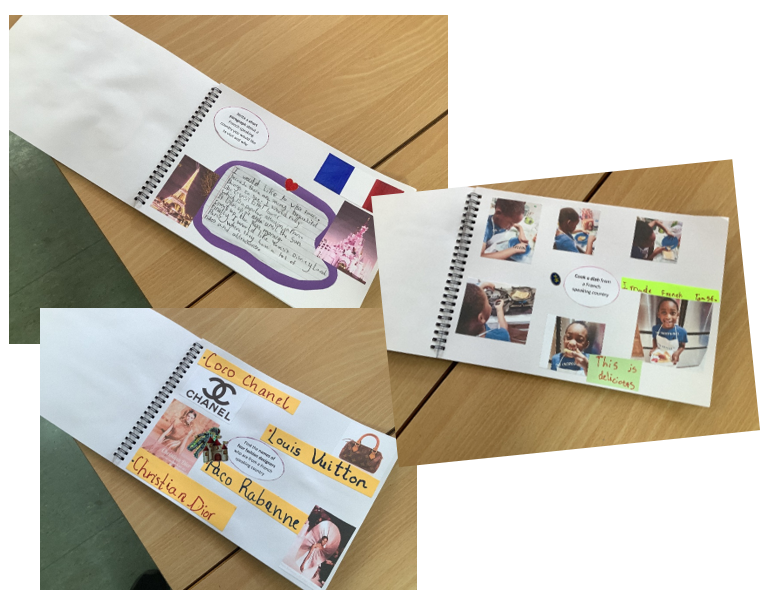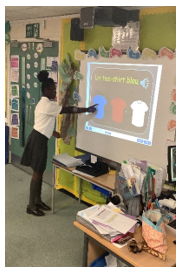Modern Foreign Languages

What we believe
At Latymer All Saints we believe that languages are the gateway to the world for our children. The curriculum that we deliver we trust will inspire our children’s curiosity, fascination and sense of awe and wonder about the world they live in and its people: a mind-set which will remain with them for life.
At our school, the intention of our MFL curriculum is to develop an interest in and thirst for learning other languages. We aim to introduce the learning of the French language, the understanding of their culture in enjoyable and stimulating ways. We hope to embed the essential skills of listening, reading, speaking and writing. Developing the children’s ‘culture capital’ so that they are aware of similarities and differences between cultures. In short, we hope to lay the foundations for future language learning. Developing and demonstrating substantial progress in the key language skills necessary for learning French:
- Listening to a language and joining in to learn everyday words and phrases
- Learning how to have conversations in another language to share ideas and opinions as well as being able to ask and answer questions
- Reading texts and stories in another language, carrying out basic comprehension tasks
What we do
MFL French lessons are taught 3 times per week in Key Stage 2 and 2 times per week in Year 2, where the language is introduced. The sessions are 10 – 15 minutes long in length and are taught through the online Languages Application DUOLINGO.
Through the completion of the Duolingo challenges, learners earn XP, or experience points, whenever they do activities, like completing a lesson or reading a story. Duolingo skills are colourful circles that cover the vocabulary and grammar relevant to a particular communicative function, like how to order food in the restaurant skill. Each skill is made up of multiple lessons, or collections of exercises that target subsets of content.
One way that Duolingo has committed to pupil motivation is through gamifying learning to make the process of learning a language more fun for students. Students earn experience points that they can use to show off their skills, or Lingots and Gems, which they can use as currency to deck out Duo with snazzy new outfits.
Key skills learned, through teaching with Duolingo, focus on the development of Reading, Writing, Speaking and Listening in the language.
Photos from our recent French competition:
Our pupils’ thoughts:
“I really like learning new words and answering the questions. It makes me happy to do French.” Year 2
“French at Latymer All Saints is challenging, but fun!” Year 3
“I love French language, it’s good because Duolingo is a good game that makes your head work.” EAL pupil Year 4
“French with Duolingo is great, if I wanted to travel to France, Switzerland or Luxemburg, French at school has helped me to talk to people in French and communicate with French citizens around the world.” Year 5 pupil
French is a difficult language as some words are hard to pronounce. But with Duolingo at school and at home, it becomes easy, because it is so exciting and fun.” Year 6 pupil
What we achieve
When our pupils leave Latymer All Saints, they are motivated to further develop their individual potential and take part in lifelong language learning. Pupils have increasing self-confidence in their abilities and use their skills to make a positive contribution as citizens in the wider world.
By the end of key stage 2, pupils should be able to:
- Listen attentively to spoken language and show understanding by joining in and responding.
- Explore the patterns and sounds of language through songs and rhymes and link the spelling, sound and meaning of words.
- Engage in conversations; ask and answer questions; express opinions and respond to those of others; seek clarification and help.
- Speak in sentences, using familiar vocabulary, phrases and basic language structures.
- Develop accurate pronunciation and intonation so that others understand when they are reading aloud or using familiar words and phrases.
- Present ideas and information orally to a range of audiences.
- Read carefully and show understanding of words, phrases and simple writing.
- Appreciate stories, songs, poems and rhymes in the language.
- Broaden their vocabulary and develop their ability to understand new words that are introduced into familiar written material, including through using a dictionary.
- Describe people, places, things and actions orally and in writing.
- Understand basic grammar appropriate to the language being studied, including (where relevant): feminine, masculine and neuter forms and the conjugation of high-frequency verbs; key features and patterns of the language; how to apply these, for instance, to build sentences; and how these differ from or are similar to English.



